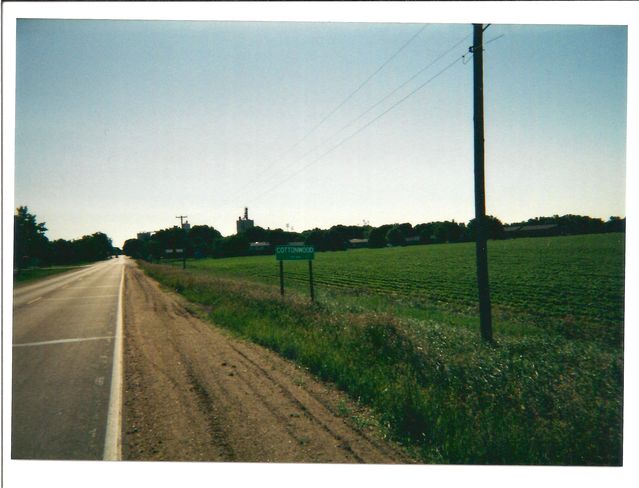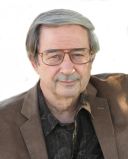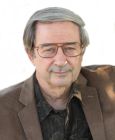Cognition
Stereotyping Small Town America
Are Americans from small towns different than city dwellers?
Posted March 15, 2019
I was almost 22 years old when I left my Minnesota small town. I still remember the day I packed my few belongings, shoved them into the backseat of my ancient Oldsmobile, and drove out of town. I took a few quick glances into my rearview mirror as my hometown gradually disappeared from sight. I felt nothing in the way of nostalgia or sentimentality. I felt I had overstayed my welcome, and I was long overdue for new experiences and new people to meet. I vowed that I would never look back.
That vow didn’t last very long. In the years that followed, all I did was look back. Most of the works of fiction and nonfiction I published after I left my hometown are set in rural communities. I became obsessed with looking back at the people I knew from my earlier years. In the process I often wondered, were they really that different than people I met in Minneapolis, Los Angeles, San Diego, and other big cities?
Subconsciously, I think I was on a quest to find my own true feelings, which were decidedly mixed, for the small town of my youth. In time, I developed a university-level course titled “Small Towns in American Literature.” That, too, had personal resonance, as I tried to determine if some of the authors in our literary canon were more successful in characterizing America's rural communities. These authors reveal the many diverse ways our nation viewed small towns and the people who lived in them. Their novels, poems, and other literary works not only reflect national attitudes toward small towns: They helped create them. Sometimes those characterizations were not very kind.
Sinclair Lewis (1885-1951)—the author of "Main Street" who grew up in Sauk Centre, Minnesota, not too far from my hometown—presented characters who are petty, small-minded, and intractably provincial. His portrayals of America’s small towns are among the most negative in our literary canon. Sherwood Anderson (1876-1941), the author of "Winesburg, Ohio," shared many of Lewis’s reservations about small town people he often described as stubbornly, even obsessively locked into narrow-minded ways of looking at life.
Other authors present a more nuanced and balanced view. Edwin Arlington Robinson (1869-1935) created a wide array of characters who inhabited the fictional community of Tilbury Town. The characters in his poems represented the full range of human personalities: dreamers, lost souls, small-town philosophers, disillusioned and obsessive lovers, egomaniacs, and others who lived simple, unpretentious lives.
Willa Cather (1873-1947) presents one of the most positive views of small towns, one that is based on her own experiences in Red Cloud, Nebraska. In her Prairie Trilogy ("My Antonia," "O Pioneers!" and "Song of the Lark"), she acknowledges that the early frontier communities offered limited opportunities for personal growth. However, most of the major characters in the trilogy are characterized as hard-working, immigrant pioneers who overcame everything life and nature threw at them as they tried to create rural communities.
For almost half a century I have reread each of these authors and many others who write about small towns. In the process, I have come no closer to defining a single characteristic that applies to all small-town Americans and their communities. These characters admittedly play out their lives on a smaller stage. Perhaps, for that reason, their eccentricities, dreams, and daily concerns stand out more than their counterparts in big cities. Therefore, they are much easier to describe in literary works. Otherwise, they are probably no different or less complex than the rest of the human race.
To get a fuller picture of small-town Americans, I decided to take a closer look at my own experiences. I quickly realized that former residents of my hometown and adjacent small towns had accomplished some pretty remarkable feats in their lifetimes. One was a pioneer in open-heart surgery at the University of Minnesota. Another was a relative who helped develop research into modern nuclear physics. Yet another is an entomologist whose research into insect-borne diseases has alleviated the suffering of people in less developed countries.
Then there were also those who stayed closer to home, trying to keep small-town America alive and functioning even in the face of overwhelming national and international corporate competition. If there are any heroes in this piece, they are probably the ones who deserve that recognition. Should Americans find a way to help protect our dying small towns and the merchants who keep Main Street America alive? If we fail to protect a way of life, are we losing something that is essential to our national identity and values?
Perhaps one encouraging note is that many people are moving back to the small towns where they were raised. Sociologists and economists have suggested a variety of sophisticated reasons for this trend. Personally, I think the explanation is rather simple. It is probably reflected in one way small-town expatriates like myself look back on the rural communities where we once lived. My colleagues and friends who come from urban communities seem to have a different way of describing their trips back to the big cities where they lived in their youths. They often say: “I’m going back to New York,” or “I’m going back to Dallas,” or “I’ll be visiting relatives in Chicago.”
It’s been over 50 years since I loaded my Oldsmobile and drove out of my hometown, vowing never to look back. Yet I, like so many others from small towns, have a different way of describing our returns to the communities where we once lived. We often say, “I’m going home.” With the possible exception of Sinclair Lewis, those of us who were raised in small towns never seem to stop thinking of them as “home.” Maybe that’s the only difference that matters when we think about our nation’s small towns and the people who inhabit them.





